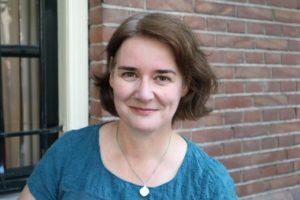10th Annual Bailey Distinguished Alumni Lecture
The University of Kentucky Department of Geography invites you to our 10th annual Harrison and Eva Lewis Bailey Distinguished Alumni Lecture. Harrison and Eva graduated from UK; Eva from psychology in 1948 and Harrison from geography in 1949. Read more about the fund here, established by Harrison in memory of Eva.
Viral Worlds: Researching and Experimenting with the Flesh of the World

A concern for the reach of pathogenic viral matter into human bodies emerged as a deeply colonial project with fears over the transformation of endemic diseases into epidemic ones conjoined with cautions of population decline in the colonies and disrupted trade routes.
Philanthropo-capitalist organizations, university researchers and government officers pursued "public health" through the continuous unfolding of experimental techniques in sites considered the "home" of viral pathogens. Viral research was valued as offering a safer future even as it sat alongside the structural violence of colonialism manifest in lives truncated by chronic disease, expropriation and the radical reshaping of rural and urban environments.
Amid a neoliberal roll- back of primary health care, and a targeted reinvestment in disease-specific programs and sustainable goals, viral research continues to tread this well-worn ground. The Zika pandemic outbreaks of 2015-2016 ushered in a by now well-worn anatomo-politics of safe sex and abstinence. Yet, the transgenic engineering of vectors prompted by this pandemic also saw the emergence of something new: an interruption to the way in which viral matter was not only researched but afforded a tempo that superseded the "natural evolution" of life.
Drawing on specific examples, this presentation maps out the reiteration of colonial tropes on disease ecologies and experimental design in this new set of technological practices. But it also goes on to draw out how transgenic engineering -- this new viral tempo -- is both a feature of the Anthropocene’s "forcing" of matter and a proposed solution to the same. The superseding of a natural evolution is a measure of Global North scientists’ drive to rise above the flesh of the world and a reminder of the remaking of the Global South as a living laboratory intended to facilitate this through the provision of viral samples and test subjects. In these viral worlds, what scope is there for decolonization?

Image: Transgenic female mosquitoes expressing a fluorescent protein (glowing blue) and nontransgenic mosquitoes (no color). Source: Could Genetically Engineered Insects Squash Mosquito-Borne Disease? - Science Friday
Dr. Deborah Dixon is professor of geography in the School of Geographical and Earth Sciences at the University of Glasgow, Scotland. She received her Ph.D. in geography from the University of Kentucky in 1995. Dixon is an internationally recognized scholar in feminist geopolitics and has been key to the emergence of "geo-humanities" as an interdisciplinary field of research and practice. She is the co-founder of the interdisciplinary (American Association of Geography) journal GeoHumanities, which publishes analytic and practice-based research. She has researched aesthetic, technological, political, and cultural responses to environmental problematics (including toxic landscapes, loss of biodiversity, and climate change impacts) in Europe, the United States, sub-Saharan Africa, Australia and Japan. Most recently, her research has addressed the making of an innovative interdisciplinarity, including the potential for creative geo-visualization in narrating and reimagining the stressed relationships between people and place.
Please contact the Geography Department's office for more information about joining us for the Bailey Alumni Lecture.
For more information on our speaker, the event, and more, please visit the official Bailey Alumni Lecture webpage.
